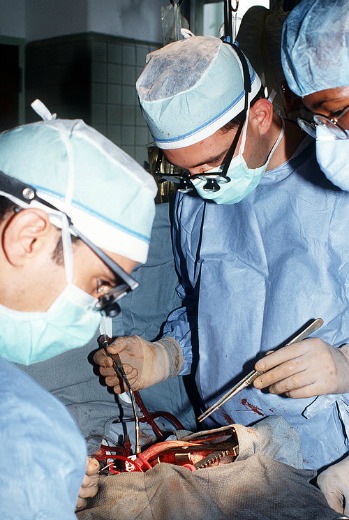We all know what healthcare is supposed to be about --- saving lives and treating people.
So it can be a real rude awakening to hear that medical errors are being reported as the third highest cause of death in the United States, according to research at Johns Hopkins University.
The study, which was led by Johns Hopkins surgeon Dr. Martin Makary, found that over 250,000 people die from medical errors each year. That follows just behind heart disease and cancer, which claim about 600,000 lives collectively.
How does this happen?
Well, it’s not a complete mystery to those of us who are in the industry like nurses, doctors and everyone else who gets an upclose view to the chaos can ensue behind the scenes.
Healthcare professionals aren’t infallible; anything from mixed up dosages and incorrect medication to surgical complications can happen more often than some are willing to admit.
The thing is, it’s very difficult to get the precise impact of medical errors because the Center for Disease Control (CDC) coding system doesn’t record things like diagnostic errors, communication issues or bad judgement as options for death certificate data, the study found.
"You have this over appreciation and overestimate of things like cardiovascular disease, and a vast underrecognition of the place of medical care as the cause of death," Dr. Makary said.
The authors of this study are asking the CDC to change that.
However Bob Anderson, the chief of the mortality statistics branch for the CDC doesn’t agree with the accusation that the agency’s coding is insufficient. He told NPR that complications from medical errors are listed on death certificates and there are codes to capture them.
But this appears to be negated by the fact that the CDC’s published mortality rates only consider the “underlying cause of death” which is defined as the condition that led someone to seek treatment.
So if someone came into the hospital for their heart disease, but a faulty procedure is what caused their demise, that procedure isn’t revealed in the published totals, just the heart failure condition.
The research suggests the current method of medical error documentation is keeping the general public in the dark about the gravity of medical error related deaths and subsequently, this leads to no research in this area.
Dr. Tejal Gandhi, who is the president of the National Patient Safety Foundation, said improved tracking would improve funding and public recognition.
The Johns Hopkins authors recommend that death certificates be modified to ask whether a preventable complication of care contributed to a patient’s death.
Anderson of the CDC said it’s uncomfortable for doctors to have to report that a patient died from a medical error and adding that change to a death certificate won’t solve the issue. Instead, he thinks the focus should lie with educating doctors about the importance of reporting medical errors for the sake of public health.
Dr. Eric Thomas, who teaches medicine at the University of Texas Houston Medical School said while estimates aren’t exact enough for him to support medical errors being listed as the third leading cause of death, he supports collecting better data for causes of death because medical errors is underreported.
"If we can clarify for the public and lawmakers how big a problem these errors are...you would hope it would lead to more resources toward patient safety,” Dr. Thomas said.
To review the entire report published in The BMJ, click here http://www.bmj.com/content/353/bmj.i2139

